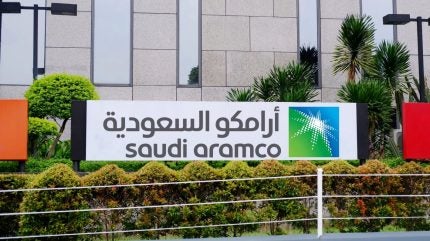
Saudi Arabian oil giant Aramco has acquired an additional stake of 22.5% in Rabigh Refining and Petrochemical (Petro Rabigh), a refining and petrochemical complex located on Saudi Arabia’s west coast, in a $702m (SR2.63bn) transaction.
Aramco signed a definitive agreement to purchase the shares, priced at SR7 per share, from Tokyo-based Sumitomo Chemical. Both companies currently each own 37.5% of the shares in Petro Rabigh, which was listed on the Saudi Exchange in 2008.
Once the transaction is complete, Aramco will own the majority of Petro Rabigh’s shares with an equity stake of 60%, with Sumitomo retaining 15%.
Petro Rabigh has been struggling financially, racking up accumulated losses of $2.36bn by the end of June, equivalent to more than 53% of its share capital. Under Saudi law, if a joint-stock company’s losses are half of its issued capital, it must make recommendations to address the losses within 60 days.
In a press release, Aramco noted that under the terms of the share sale and purchase agreement, all proceeds received by Sumitomo Chemical from the sale will be reinvested into Petro Rabigh, through a mechanism that will be agreed with Petro Rabigh.
In an attempt to revitalise the ailing company, Aramco will invest an additional $702m of its own funds to “improve Petro Rabigh’s financial position and support Petro Rabigh’s future strategy”.
How well do you really know your competitors?
Access the most comprehensive Company Profiles on the market, powered by GlobalData. Save hours of research. Gain competitive edge.

Thank you!
Your download email will arrive shortly
Not ready to buy yet? Download a free sample
We are confident about the unique quality of our Company Profiles. However, we want you to make the most beneficial decision for your business, so we offer a free sample that you can download by submitting the below form
By GlobalDataHussain A. Al Qahtani, Aramco’s senior vice-president of fuels, said: “Aramco continues to identify opportunities to strengthen its downstream value chain, secure placement of its upstream crude oil with affiliated refineries and convert more of its hydrocarbons into high-value materials. By increasing our shareholding, we expect to achieve even closer integration with Petro Rabigh and facilitate its turnaround strategy.”
An extraordinary general meeting must be called among the shareholders within the next 180 days to either resolve the losses or dissolve the company.
Petro Rabigh put its poor second quarter results down to “unfavourable market conditions which resulted in lower or negative margins of the refined and petrochemical products” and increased costs due to rising interest rates.



